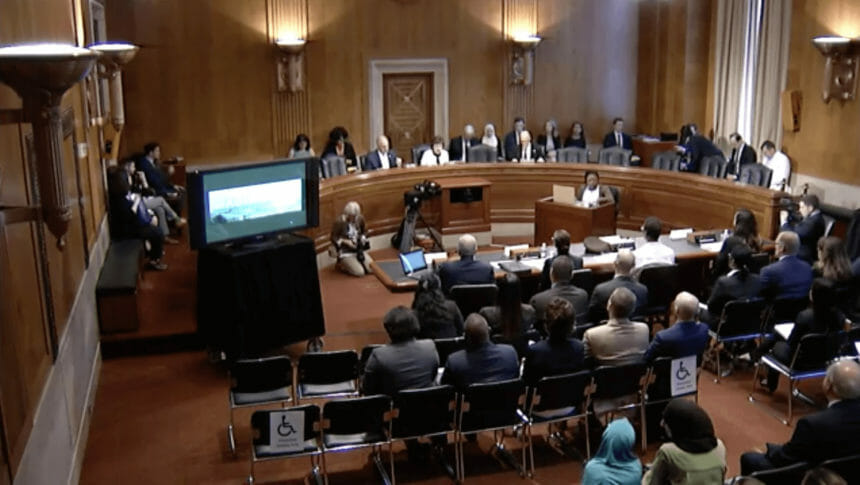
Several bills under consideration in Congress aim to protect older adults and others from robocalls, the second-most reported complaint to the Senate Special Aging Committee’s Fraud Hotline last year, committee members said Wednesday during a hearing on the topic.
“Using just phones and the internet, fraudsters have proven to be relentless,” Committee Chairman Sen. Susan Collins (R-ME) said. “To protect our nation’s seniors, we must continue not only to prosecute con artists who steal billions from our seniors, but also to find new, more effective ways to block illegal spoofing and robocalls at the network level.”
In 2018, automated robocallers generated more than 48 billion unwanted calls that reached American landlines and mobile phones, the senator said. Spoofing is a tactic whereby scammers disguise their actual telephone numbers and or names on victims’ caller ID to make it appear that the call is coming from a legitimate source.
Collins announced that she and colleagues were introducing the Anti-Spoofing Penalties Modernization Act. The act, she said, complements the Telephone Robocall Abuse Criminal Enforcement and Deterrence (TRACED) Act on which she was a co-sponsor with Sen. Angus King (I-ME); it passed in the Senate in late May by a 97-1 vote.
The TRACED Act, according to Collins, would make it easier for regulators to find scammers, would increase civil forfeiture penalties for those who are caught, would promote call authentication and blocking adoption, and would bring relevant federal agencies and state attorneys general together to address impediments to criminal prosecution of robocallers who intentionally flout laws.
The Anti-Spoofing Act, Collins said, “will complement the TRACED Act’s provisions on robocallers by doubling existing penalties and by extending the statute of limitations on prosecuting illegal spoofing.”
Sens. Kyrsten Sinema (D-AZ), Josh Hawley (R-MO), Gary Peters (D-MI) and Martha McSally (R-AZ) also introduced the act, according to Collins.
Sen. Bob Casey (D-PA), ranking member of the Aging Committee, pointed out that he and Sen. Jerry Moran (R-KS), chairman of the Senate Committee on Commerce Subcommittee on Manufacturing, Trade, and Consumer Protection, introduced the Stop Senior Scams Act earlier this year.
“This bill would create another line of defense against scammers by giving bank tellers, cashiers and others the tools to spot a scam and prevent someone from ever handing over cash to a stranger on the phone,” he said. “We hope that this bill is enacted swiftly.”
Also Wednesday, the Consumer Financial Protection Bureau issued an updated advisory urging banks and credit unions to report to the appropriate local, state and federal authorities whenever they suspect that an older adult is the target or victim of elder financial exploitation. The report contains the bureau’s recent research on suspicious activity reports and new information about reporting financial abuse based on federal and state law changes.



